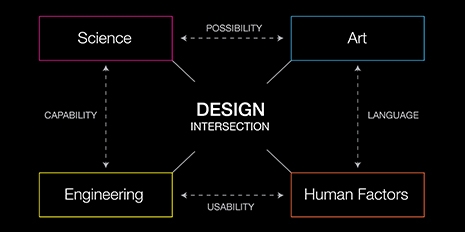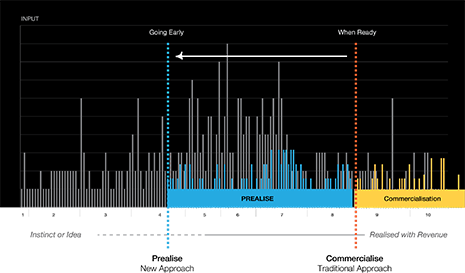
On the 8th August I had the privilege to participate in judging the Young Innovator Awards (YIA) and then speak at the YIA Innovation Forum on the 9th August in Tauranga. Well, what an event, an absolute cracker two days. YIA is a programme set up to foster a culture of innovation, and judging the student entries it was clear that this is well on the way to being achieved. So many cool ideas; so much so that we decided to offer an internship for one student with a cool little ice cream idea, yet he didn’t even win the top junior award because the quality of ideas was so good!
YIA is sponsored by Priority One, Locus Research, Woods Creative, and this year with the support of ExportNZ BOP, YIA launched the Innovation Forum with the goal to get business involved. The Innovation Forum featured some truly fantastic speakers so it was quite amazing being in the company of so many great leaders.
For my talk I decided to touch on four lessons that I have learned that I believe are very key to being innovative. My presentation is posted below as a thought piece. Included in it around a discussion on why we kiwis may struggle with commercialisation, I introduced a concept called Prealisation. Here is a snippet from the presentation. I intend to post a few other snippets over the coming weeks.
Kiwis struggle with commercialisation. There are many reasons why this may be so. Here I want to briefly mention four killers:
1. Nation of Outside Thinkers
We are a nation of outside thinkers. This is why we are so good at coming up with new ideas. We live on the edge. I have learnt that commercialisation requires the direct opposite – inside thinking. You have to know how it works on the inside, the unwritten rules, and the inside dynamics.
2. We Run Dry
Towards the end of projects, many often run dry of cash and resources. NZ business is largely made up of SMEs, so it could be naturally expected. Late stage R&D and early stage commercialisation is known as the valley of death, and there is little support and funding available down there.
3. Struggle to Communicate Our Innovations
We struggle to communicate our innovations, generally speaking. And therefore go under-prepared and we undo all the good work done to get into position.
4. Perseverance in Isolation is Tough
Perseverance is key but it’s tough in isolation. Edison was right; persevering can be tough with distance to global markets.
While the first couple of points might be difficult to address, the third isn’t acceptable. You see, to win on innovation we first need to win on communication. As I have progressed in my own career, with projects becoming longer, with greater depth of research and development, it became very clear to me that execution is everything, and is as important as the Big Idea itself. Basically we need to make our innovations look awesome. Simple. We need to take all that technical detail and translate it into something someone can draw playing Pictionary by the time the timer stops.
To win on communication we need to get better at visualising. You need to develop the right language and style, tone and brand. The typical approach though is to cosmetically add this towards the end, once the product is close to being ready. I don’t believe in this approach.
Most of our projects and products I have worked on have had commercialisation integrated in from the start and it develops over the entire project. By the time we hit market, we have a look and a language that projects our products authentically. So the point here is: treat communication like a product development in itself.

With respect to the first point about outside thinkers and the last point about perseverance, I have been playing around with this concept which I think could work quite well with our kiwi way.
You see, commercialisation normally occurs towards the end of R&D. There are a few factors here, including the public domain with respect to IP protection, which places core commercialisation activity shortly after being almost ready (to have a stronger position you file later when things are more resolved or known which means you start making noise in public later in the game).

Preasliation, however, is a new idea about commercialising early, almost from day one of your project. It’s a concept about bringing forward commercialisation deep into the R&D domain. It’s based on going early to market and using the market to drive R&D activities. Much like Pretail but it’s more about the broader elements of building and launching new ideas, products, and services ahead of being ready, priming a market and building awareness, rather than actually receipting orders with a lead time on shipping first units.
We recently worked through a distribution agreement with a large pharmaceuticals company. During this process we got access to unbelievable real-time information. They tapped into thousands of distributors and resellers directly for us and supplied us all of the metrics we needed. This is so hard and expensive to gather yourself without such alignment or partnership.
With new media and the growing open-source economy, you can build momentum and your tribe of prospective users now, almost before your product is ready. Our experience with it shows that it helps backwardly apply pressure on R&D to forwardly create propulsion through to launch, therefore helping the perseverance factor. Going early may also prevent you running dry. To pull Prealisation off you need to be awesome at communication.
The movie industry has been doing this for years with shorts and trailers, and software has been doing it under an agile method where the program gets developed up over time, in market. Peter Jackson primed the market almost 12 months ahead of the release of The Hobbit and by the time that hit cinemas so many were compelled to visit the theatre.
Going early has its benefits and I think this fits our way, so fingers crossed. We have started to build a suite of tools and devices that can enable us to prealise new ideas as they are being developed and to overcome some of these commercialisation aspects many of us struggle with. Have a think about what prealisation could do for your project.
Here is my presentation, given to the 2013 YIA Innovation Forum, which explains a bit more:
Comments
Hey Blythe Could you send me
Post new comment